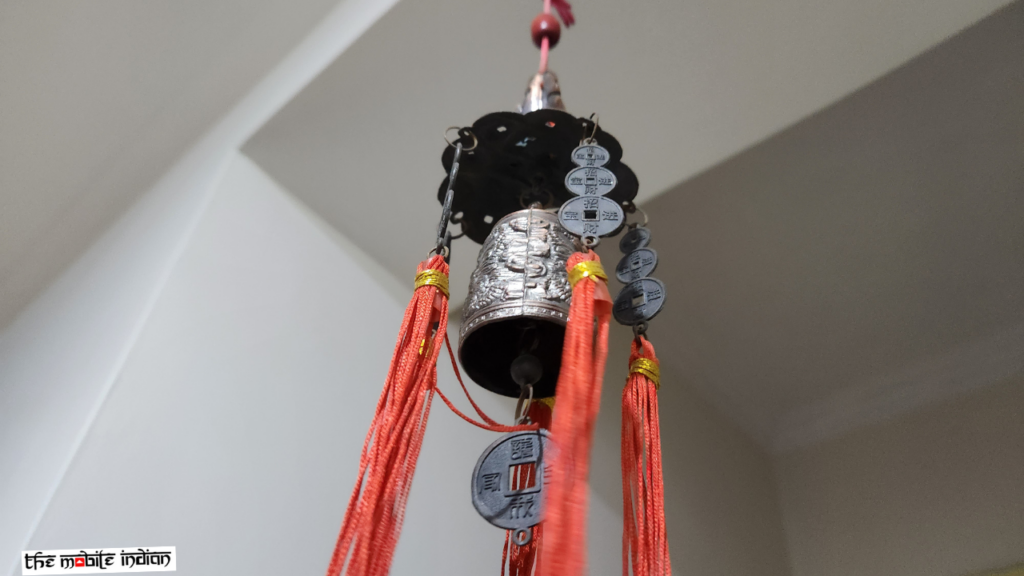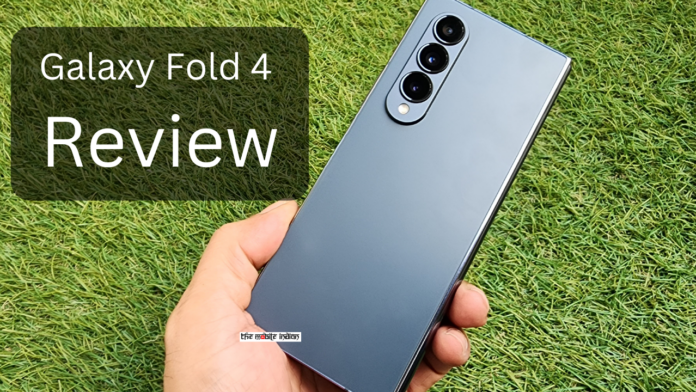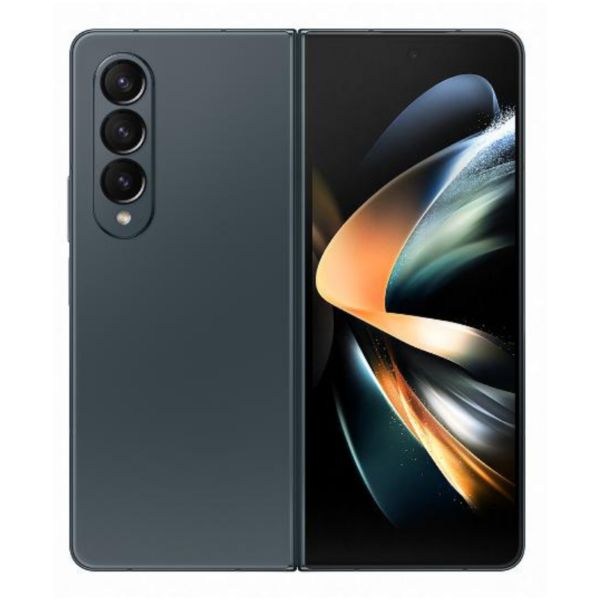In our latest review, the Samsung Galaxy Fold 4 is put to the test. This device has three sides: a smartphone-only side, a tablet-only side, and a foldable phone with both. So how does it perform? Let’s check it out in our Review of the Samsung Galaxy Fold 4.
Price of Samsung Galaxy Fold 4
Prices for different variants of Samsung Galaxy Fold 4 with 12 GB RAM are as follows:
256GB: Rs 1,54,999
512GB: Rs 1,64,999
1TB: Rs 1,84,999
Colour Options: Grey-green, Phantom Black, and Beige
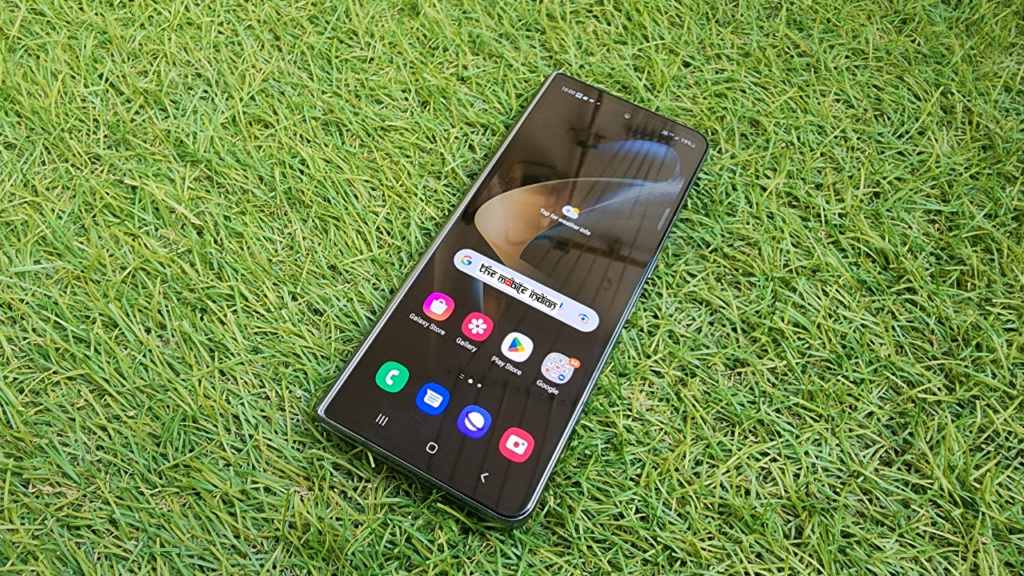
Design – Samsung Galaxy Fold 4
The new Samsung Galaxy Z Fold 4 is nearly identical to the old 3 when it comes down to design. However, Samsung has tweaked and improved some features, including the front display. This screen is slightly wider than its predecessor because it has a wider aspect ratio, making it easier to use with one hand. The revamped 6.2-inch panel makes your phone easier to hold while making room for more apps onscreen at any given time.
The ports, buttons, Antenna bands and microphones on Samsung Galaxy Z Fold 4 are exactly the same as on Fold 3. The outer cover screen is 6.2 inches in size, the same as the predecessor, but this time it uses Corning Gorilla Glass Victus+ for extra durability.
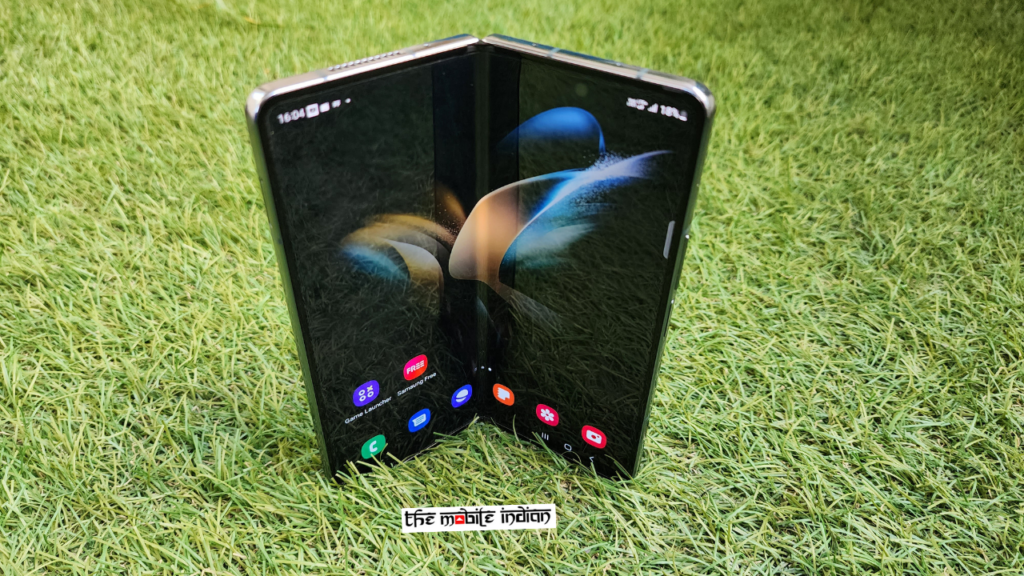
On the other hand, the internal folding display of the Samsung Galaxy Z Fold 4 is also the same size as last year’s model, measuring 7.6 inches in width. The resolution is slightly different (2176×1812 pixels) due to the somewhat wider aspect ratio, but the Pixel density remains identical. In addition, Samsung has strengthened the ultra-thin glass to give it increased durability and withstand more stress without breaking.
The Fold 4 has a 4-megapixel camera in the under-screen display, the same as Fold 3, although Samsung says it has adjusted the layout of pixels to be less obtrusive. In addition, the displays support a Refresh Rate from 1Hz to 120Hz, to save battery life and speed up scrolling and gaming performance.
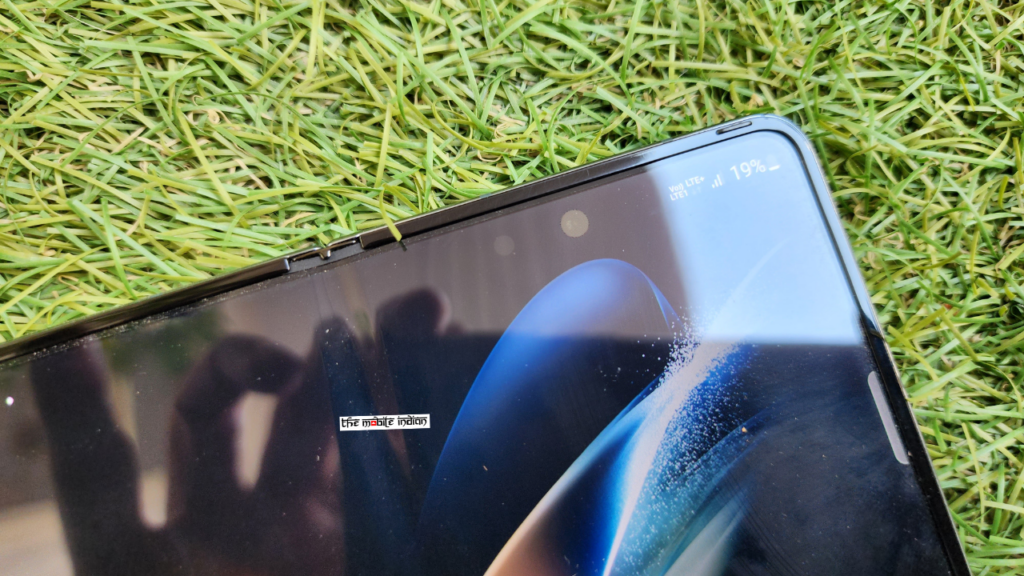
If I talk about the hinge, – it is much smoother than the previous Galaxy Fold, but there’s still a visible gap between the two halves and the crease where the display folds.
The new edition has a flatter frame and rear panel, making it comfortable to hold. In addition, the matte finish on the glass back of the phone doesn’t attract fingerprints.
Display- Samsung Galaxy Fold 4
The Galaxy Z Fold 4 is equipped with a 7.6-inch main display, but it’s surprisingly vibrant and crisp. It also has a 120Hz adaptive refresh rate and is packed with Samsung’s top-of-the-line OLED panels.

The 6.2-inch cover display also features a smooth 120Hz refresh rate, which can be reduced to 48Hz, but it’s 3mm wider now, making this device easy to use with the screen closed. I could type comfortably on the front panel, though at the same time, I felt cramped for space.
Even in the latest Fold, the crease on display makes a comeback like its predecessor. But, I must admit, while it’s not disruptive enough to ruin anyone’s experience while watching a movie or editing a sheet, it can sometimes be quite distracting.
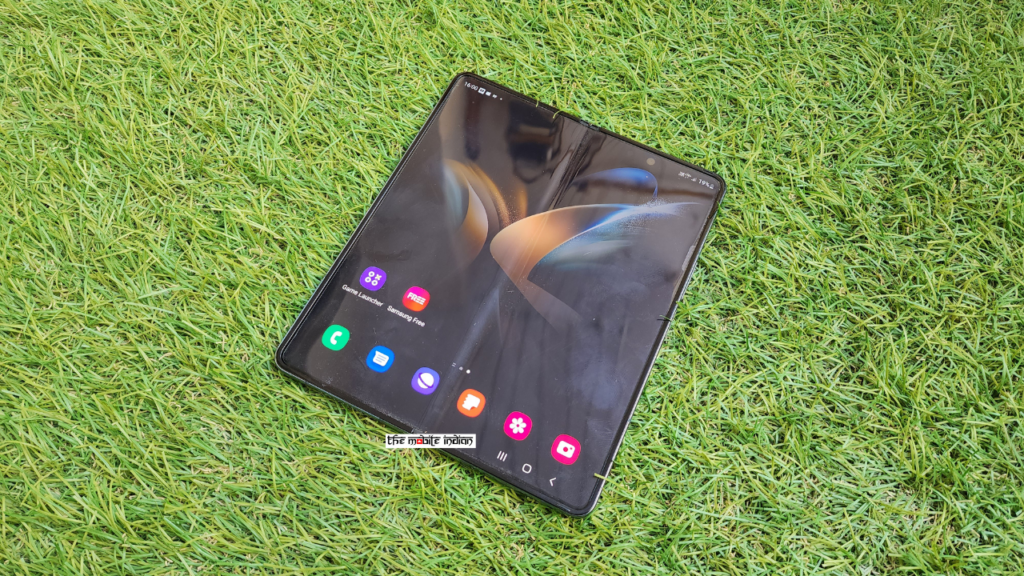
The displays on the Galaxy Z Fold 4 are bright enough in the sun, and the colour is beautifully saturated.
Read More:
Samsung Galaxy Z Flip 4 Review: Does Upgraded experience makes it exceptional?
Apple iPhone 14 Pro Review: Pro Enough?
Performance – Samsung Galaxy Fold 4
Samsung Galaxy Z Fold 4 is powered by the Snapdragon 8+ Gen 1 SoC. It also offers Wi-Fi 6, Bluetooth 5.2 and NFC with Samsung Pay.
Fold 4 has IPX8 rated for water resistance, which means it can sit in up to 1.5 meters of water for up to 30 minutes. It also has a capacitive fingerprint sensor on the power button. The folding display will work with Samsung’s S Pen and supports features like Air View and Screen-off memos. However, you have to purchase it separately and there is no space to stow it on Fold 4.
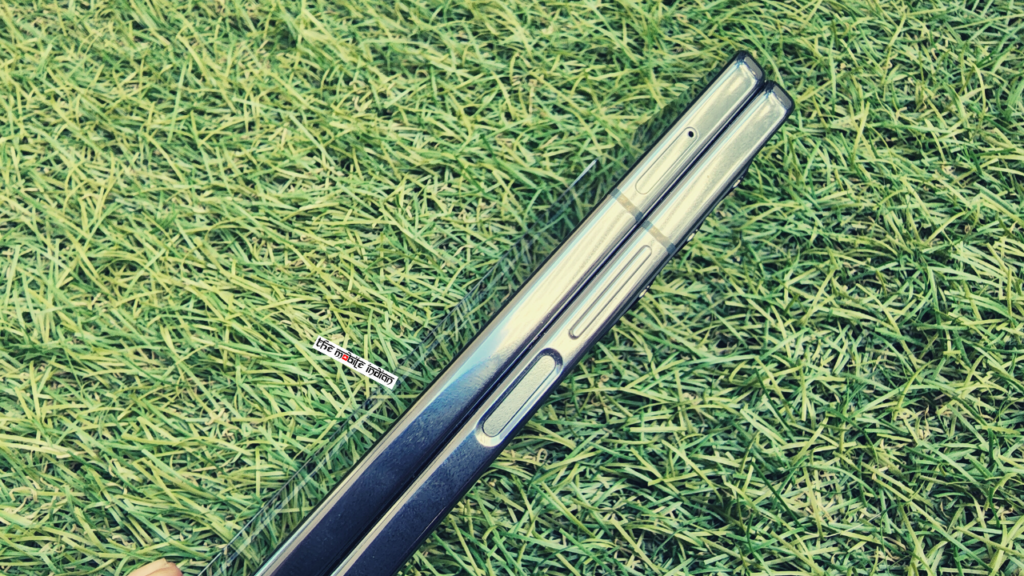
Samsung’s latest Fold is the first phone to ship with Android 12L. It is like Android 12 only but has an interface optimised for foldable and tablet screens. The taskbar on the Fold 4 is because of it. The taskbar displays your open app at the top, along with any two other recently opened apps below, as either a split-screen or floating window.
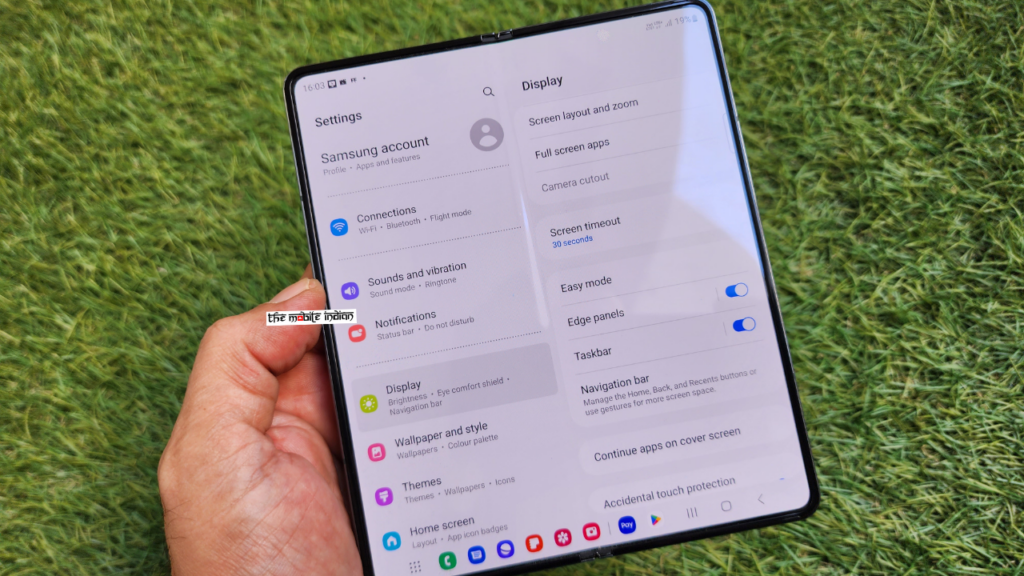
You can PIN up to eight apps in your taskbar, but you can also open an app by pressing the dotted grid icon on your home screen. You don’t need to exit the currently open app to do this! Additionally, you can disable the taskbar or hide it in settings.
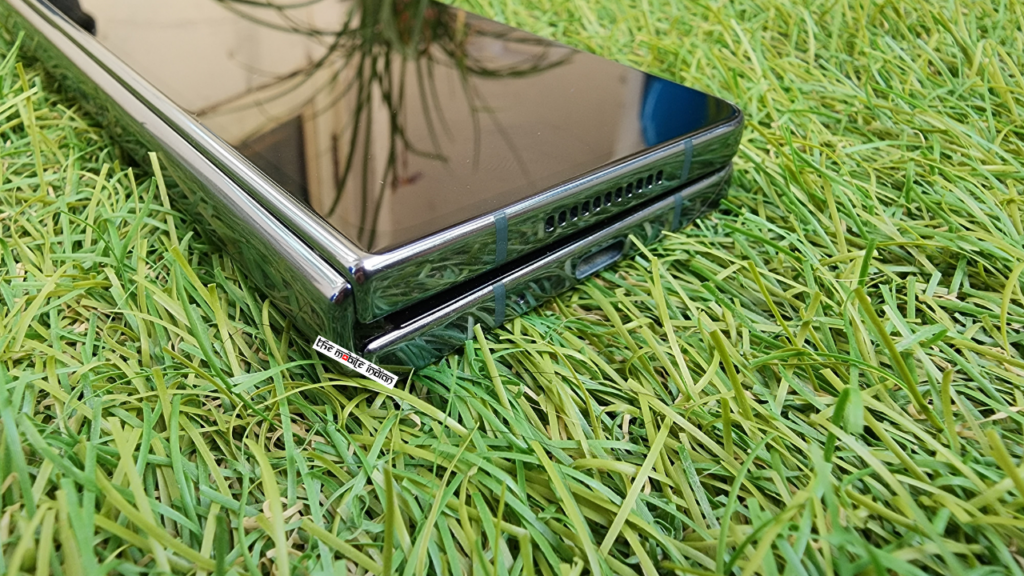
Samsung Galaxy Z Fold 4 comes with OneUI 4.1.1. While it functions similarly to the Samsung Galaxy Z Fold 3, ‘Cover screen mirroring’ makes it easy to replicate from the cover screen to the folding screen. One can even choose which apps continue to run on the cover screen after folding the phone, and there is also an excellent always-on display feature which shows alerts right on your phone’s static image – even when the device is in sleep mode. As well, there are plenty of shortcuts, gestures and downloadable themes that take advantage of this large device.
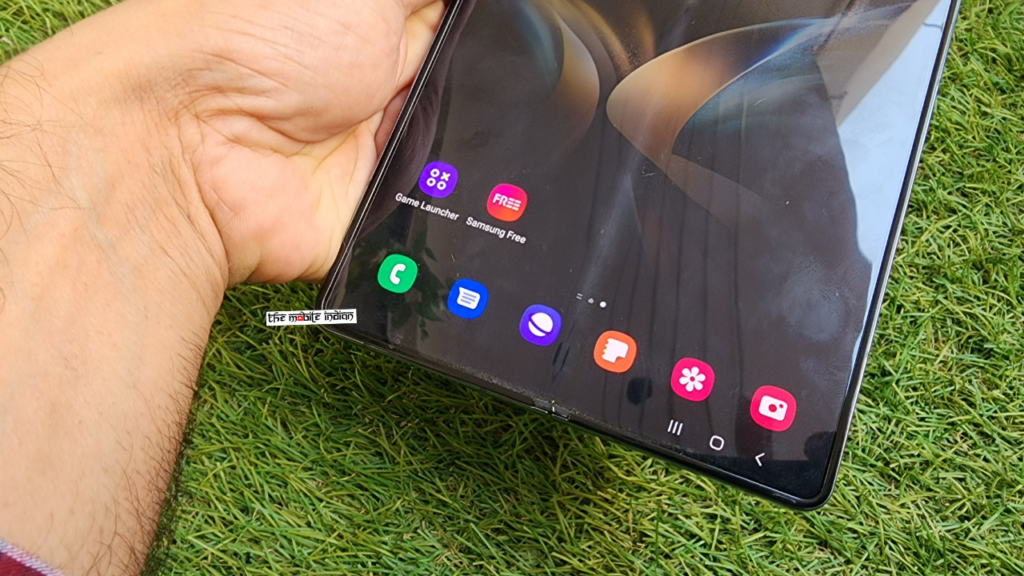
The Samsung Galaxy Z Fold 4 is designed for your everyday needs and can handle any task thrown at it.
The folding display takes multitasking with your smartphone to the next level and makes it easy to customise your workflow.
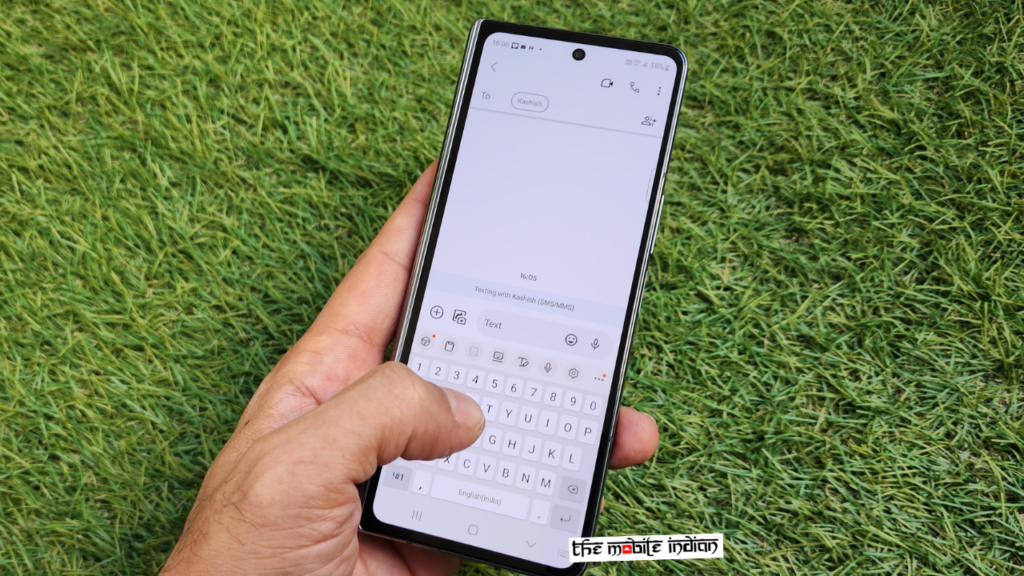
Its stereo speakers are excellent and really help enhance the large-screen gaming experience. All the heavy hitters, such as Call of Duty Mobile and Asphalt 9: Legends, ran smoothly with steady frame rates and responsive touch actions.
Battery: Samsung Galaxy Fold 4
This Samsung phone has a 4,400mAh battery- and supports up to 25W of charging. It also comes with wireless and reverse wireless charging. Samsung didn’t send me the official charger, but I could charge the Galaxy Z Fold 4 up to 48% in half an hour using a 45W USB-C PD charger.
We tested the phone in both standard mode and adaptive mode. The average runtime in standard mode was around 9 hours, which I would say is decent, not excellent. However, when we switched to adaptive mode, that runtime further came down to 8 hours.
Camera – Samsung Galaxy Fold 4
The Samsung Galaxy Z fold 4 has a big upgrade in the rear camera department. The primary camera now has a 50-megapixel sensor and supports 8K video recording.
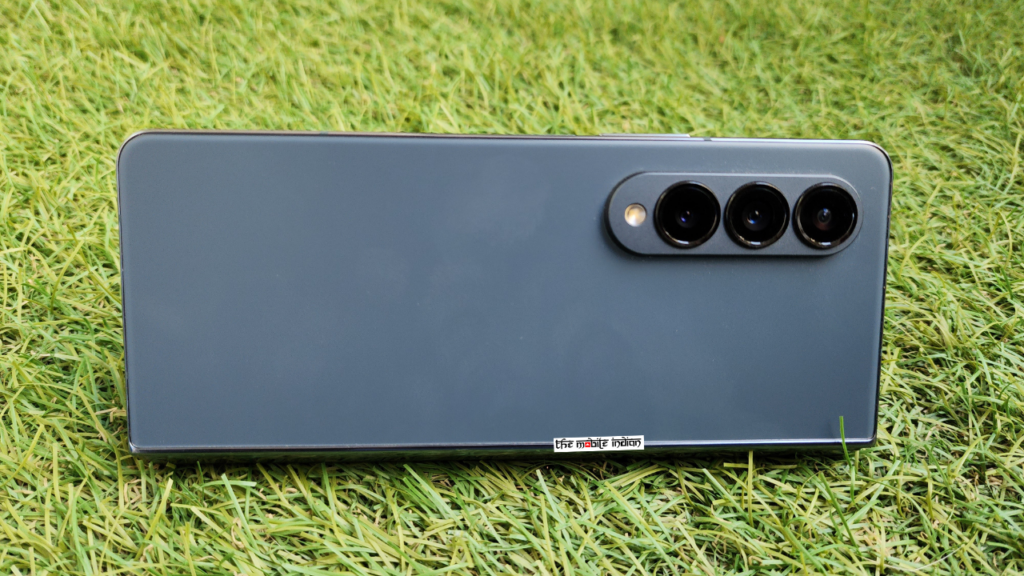
The telephoto sensor has been degraded to a 10-megapixel sensor compared to a 12-megapixel in fold 3 but supports 3X optical and 30X Digital Zoom ranges. On the other hand, an ultra-wide camera still has a 12-megapixel sensor without autofocus.
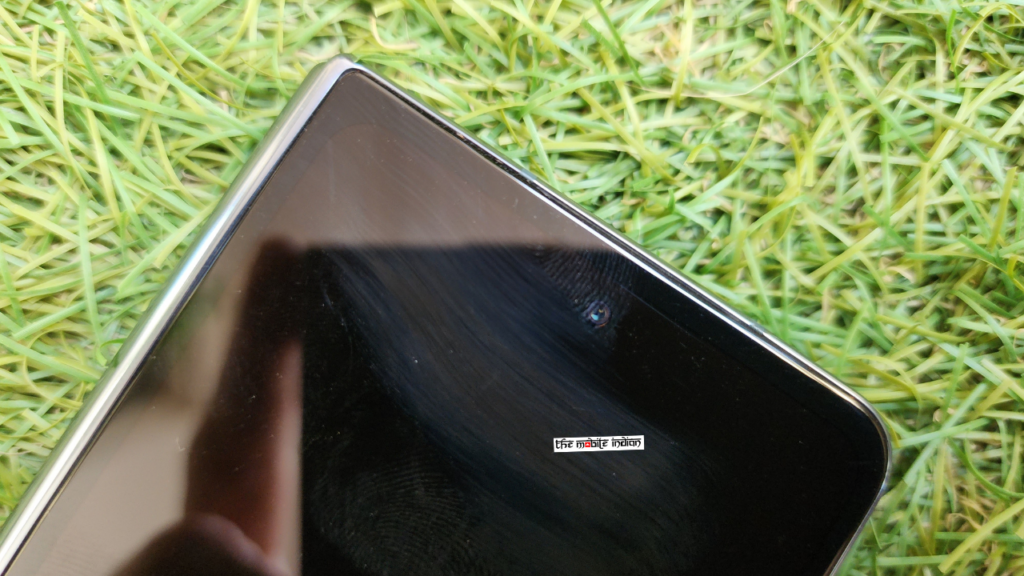
The 10-megapixel selfie cameras on the cover and 4-megapixel folding screen are similar to those of the Fold 3.
The Samsung Galaxy Z Fold 4 has better colour reproduction in daylight and sharper details of distant objects in landscape shots due to a higher resolution on the new sensor. The Galaxy Z Fold 4 is also capable of taking great close-ups. Moreover, when shooting in night mode, the Samsung Galaxy Z Fold 4 captures good photos with good exposure and detail.
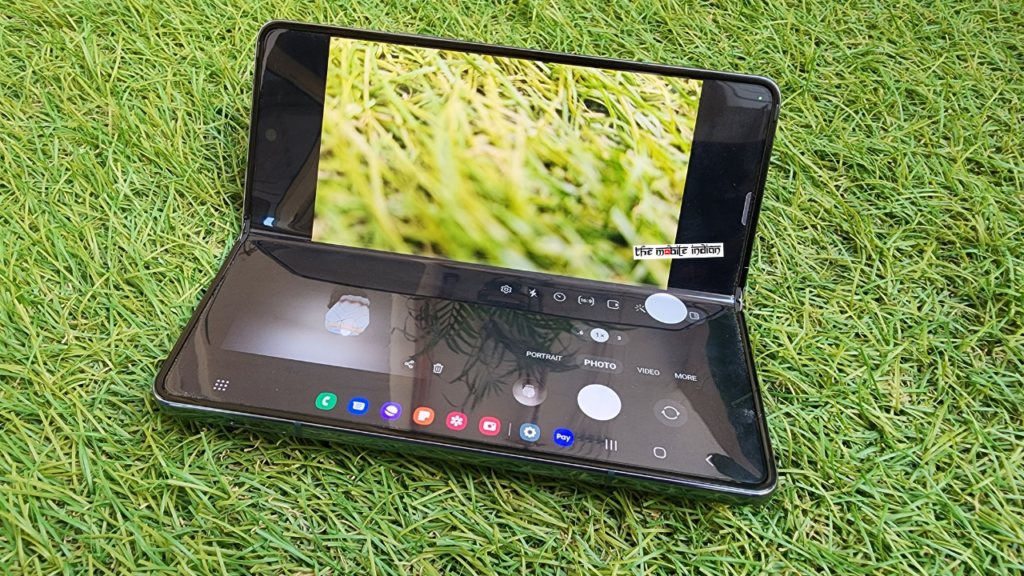
Having said that exposure and dynamic range weren’t always perfect is differnt lighting conditions. In bright-light shots came out really well. The night shots were decent after we activated Night mode.
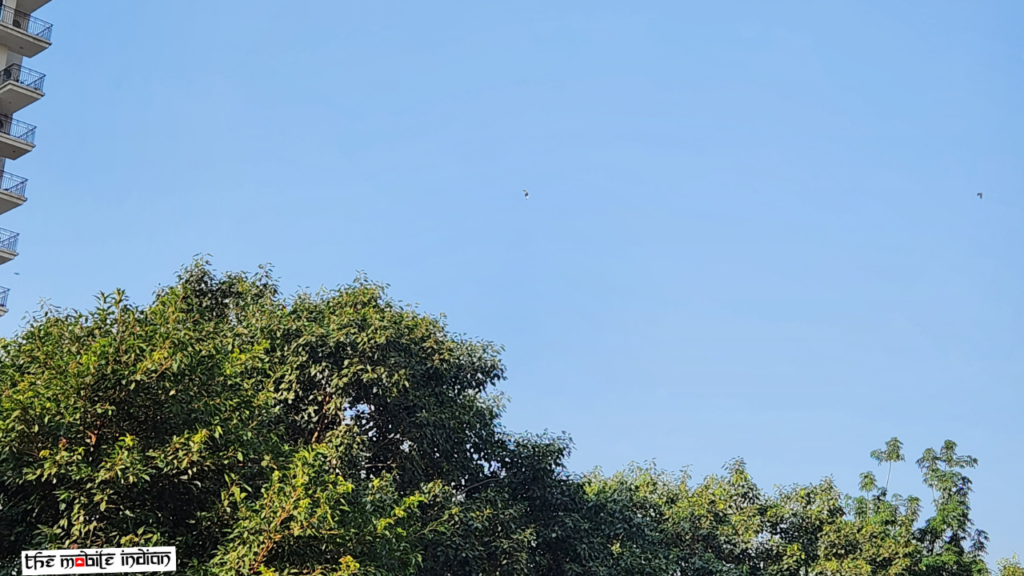
The telephoto camera achieved solid details in the daylight with the zoom lens. Details were still impressive, up to 10X magnification but started to lag at 20X magnification. In low light settings, the phone uses 3X digital zoom with the primary camera, so images keep their sharpness. The only downside is that anything above 10X magnification is taken with the telephoto lens, and Night mode doesn’t come into play here.
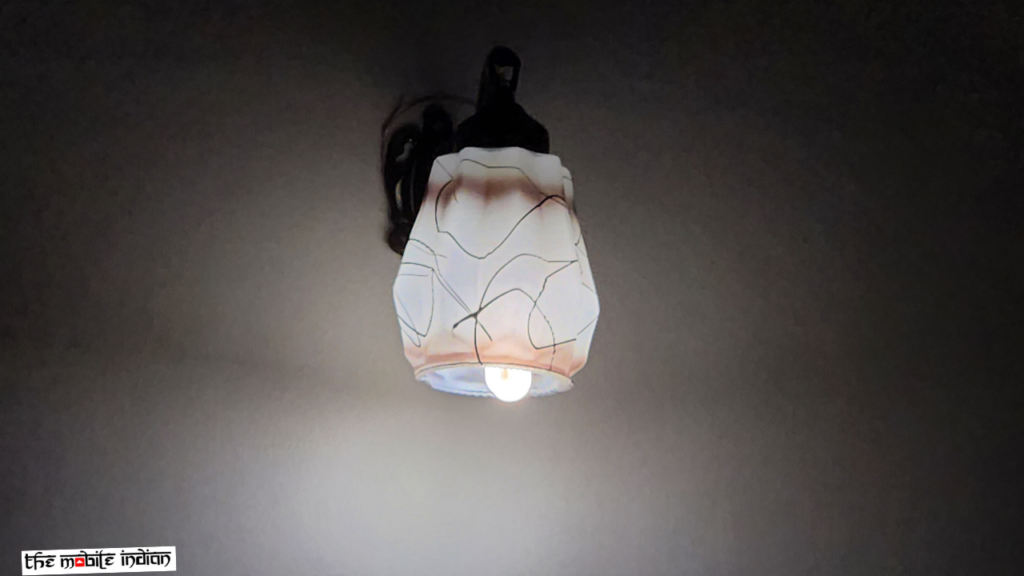
The selfies taken with the selfie camera on the cover screen are decent during the day and in low light. The under-display selfie camera excelled at taking video calls, but for photography, it was not up to the mark.
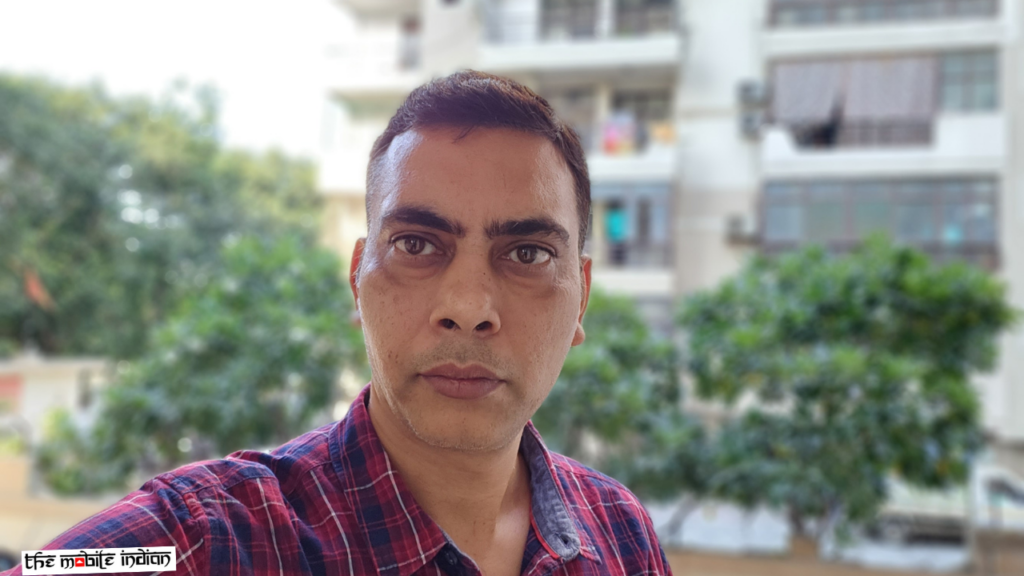

The video recordings on the Samsung Galaxy Z Fold 4 are very good. The 8K 24fps video during the day looked great and was also stabilised well. At night, there’s a little bit of jitter when walking, which can be distracting, but you can switch to a higher-resolution camera for more flexibility. The best part is that the selfie cam on the cover screen also supports 4K 30fps recording!
